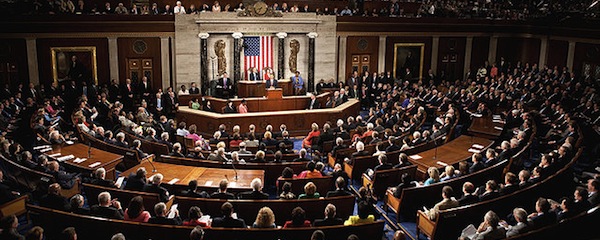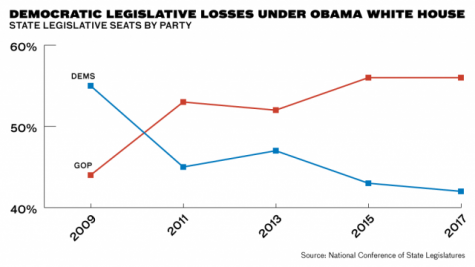The lurking power in the frozen north pulling the strings behind the Trump Administration is not the Russians but the Wisconsin Republicans.
After completely blindsiding the Democratic Party and the entire Clinton machinery, the U.S. state of Wisconsin has suddenly become the center of gravity of the coming unobstructed period of Republican governance.
The importance of Wisconsin, part of the country since 1783 and a state since 1848, goes well beyond the Democrats losing the state in November 2016 for the first time since 1988.
The fact that the margin was about 22,000 votes has garnered the upper midwestern Rust Belt state national, if not global attention due to the recount effort.
The Wisconsin takeover
Donald Trump, a lifelong New York City figure, has appointed Reince Priebus as his White House Chief of Staff. Whoever occupies that position effectively runs the Presidential administration day to day and works to advance the policy agenda of the White House.
The position is all the more crucial, given that Donald Trump, the 45th President of the United States, is temperamentally disinterested in any of the details of governance.
Indeed, he is expected to spend much of his time at Trump Tower in New York, not at the White House in Washington, where all the executive offices are located.
We can thus expect Priebus to take the reins of the executive branch fairly firmly. In that respect, he will be similar to Vice President Dick Cheney – under George W. Bush’s first term – who had previously served as White House Chief of Staff under the accidental president Gerald Ford in the mid-1970s.
Who is Reince Priebus, the “inside” President?
Priebus is the highly effective outgoing Republican National Committee Chairman and the former Wisconsin Republican Chairman.
A skilled party operator, Priebus is widely credited with preventing a cataclysmic split between the more fanatical base elements – particularly the Tea Party movement in 2010 – and other key factions of the Republican Party, such as Big Business interests and Christian/Catholic Conservatives.
Priebus did this first in 2010 in Wisconsin, which led to the election of two hardline business-backed and religious conservatives Governor Scott Walker and Senator. Ron Johnson.
Skilled in Washington skirmishes
Priebus then moved on to Washington, to right the ship at the national Republican Party. In the national capital, he brought the same bridge-building skills to the fore.
He stayed focused on his mission, despite the Republicans’ 2012 presidential defeat and the centrifugal forces that threatened to rip the party apart.
Middle man between Trump and the establishment
Priebus was also the rare Republican Party establishment figure who managed to work reasonably well with Donald Trump throughout the chaos of the campaign.
Priebus was seen as someone who stayed on message in the media and kept Congressional Republicans and state Republicans all looped in.
With Republicans controlling all branches and most states, this will prove to be an invaluable asset. As White House Chief of Staff, Priebus can now move to consolidate the policy agenda rapidly, before any serious opposition can materialize and organize.
Wisconsin man No. 2: Speaker of the House
But the Wisconsin power does not stop there. House Speaker Paul Ryan, the 2012 Republican nominee for Vice President (another victory for the promoters of the Wisconsin GOP), will preside over reliable and hardline Republican majorities in both chambers of Congress.
Ryan will likely play the role of Prime Minister to a more hand’s-off President Trump. A policy-driven man, he has already announced a very ambitious hardline Republican agenda for the first 100 days.
His agenda includes such policies as privatization of the Medicare public health insurance system for senior citizens. National anti-union “right to work” laws can be anticipated soon, based on Wisconsin law.
Ryan is also a very socially conservative Catholic. He can be expected to seek rollbacks of social liberalism, whether on abortion rights or other matters.
Wisconsin man No. 3: A Republican Senate Chairman
In the Senate, Kentucky Republican Senate Majority Leader Mitch McConnell had retained his title. However, all eyes are already turning to Senator Ron Johnson of … Wisconsin.
Johnson won a surprise re-election victory this year over Russ Feingold after unseating him six years ago. Johnson appealed to the Tea Party and used his manufacturing industry wealth to self-fund his first campaign.
He bridges the Tea Party, big business, Wisconsin Catholics & Evangelicals, and (as a tough Homeland Security and Government Affairs Committee Chair) the anti-immigrant faction.
Johnson has told the media he intends to push a Wisconsin-style “civil service reform” package at the federal level in his Government Affairs role.
That plan amounts to breaking up the public employee unions of the DC/Maryland/Virginia area and beyond. (Other major hubs are in places like California, the Democrats’ national baseline stronghold at this point.)
Why would he go after that target? Public sector unions are a major force in Democratic Party politics and (among Democratic-leaning other constituencies) the black middle class.
Assuming Johnson retains all his current Senate committee assignments, he is in a strong position to advance the Wisconsin bloc’s agenda and the Trump agenda.
As Homeland Security and Government Affairs chair, he will be partially in charge of the anti-undocumented immigrant push and construction of any border wall.
He is also on the subcommittee for “Government Investigations” and the subcommittee for “Regulatory Affairs.”
As a member of the Senate Budget Committee, he will likely champion Speaker Ryan’s House-originated budgetary proposals.
He is also a high-profile climate change denier who serves on Committee on Commerce, Science and Transportation and its specific Subcommittee on Oceans, Atmosphere, Fisheries, and Coast Guard.
Wisconsin man No. 4: Chairman of the Republican Governors Association
Remarkably, there is yet a fourth power player from Wisconsin – the aforementioned hardline Republican Governor Scott Walker. An early dropout candidate of the 2016 U.S. presidential race, he just became the Chairman of the Republican Governors Association.
That position matters at the national level way beyond intra-party matters. Republicans, with 33 governor posts, will hold an even larger majority of the 50 governorships come January than they already do (31).
This will make the association a critical force of support for the nationwide implementation of a sweeping Republican agenda.
Governor Walker is also the primary driver in Wisconsin of the radically conservative union-busting and abortion rights rollback agenda that conservative groups (including the Koch Brothers) pilot-tested heavily in the legislature there before expanding to other states.
The gift of a historic opportunity
Democrats and the American people can rest assured that Republicans will make the utmost of the rather unexpected opportunity that they now hold the keys to all relevant levers of power in Washington, D.C. and much of the nation.
Republicans realize that this is a once-in-a-generation – if not once-in-a-lifetime – opportunity to remake the country in their image and according to their policy predilections.
Republican Party operatives are likely to be all the more focused and forceful in executing their change agenda since they, too, are painfully aware of the significant demographic changes in the U.S. electorate.
Republicans play for keeps
Despite the sweeping outcome in 2016, Republicans do know that with their hostility to multiculturalism they may well be the party that is facing a structural minority among voters in the nation.
But to Republicans, that is all the more reason to lay the groundwork now to make an eventual, probably inevitable takeover by Democrats all the harder – or less meaningful, if and when it happens.
The U.S. Constitution already has significant and disproportionate benefits built in for rural areas and hence Republicans (witness the structure of the U.S. Senate and the Electoral College, to name but two factors).
More informal measures, such as eliminating voting rights enforcement at the Justice Department, can do as much damage to the cause of true representation.
The fact that the U.S. Supreme Court, as the ultimate arbiter of such changes, is going to be firmly in Republican hands for decades to come makes all of this insidious anti-democratic change (with a little “d”) all the more problematic over the long term.
The relevance of Wisconsin, again
As a matter of fact, the Wisconsin election outcome this year is somewhat of a national microcosm of problems for the Democratic Party.
If its operatives had been a bit more realistic, the 2016 election outcome ought not to have been as much of a surprise as it was.
Midterm year elections in the state kept producing embarrassing defeats for Democrats, even if by close margins. Republican success at implementing very strict voter ID laws – which Democrats have complained about but not mobilized against meaningfully – served them very well.
The Clinton campaign’s decision not to campaign in the state (despite counting on it for the Electoral College and despite losing it in the primary to Bernie Sanders) also was a fatal error.
Together, those two factors appear to have worked in tandem to depress urban turnout by several times more than the margin of victory for Trump and even for Senator Johnson.
Democratic Party candidate-endorsing labor unions in the state of Wisconsin have also expressed frustration after the November election. They had essentially been left to fend for themselves in organizing campaign efforts and messaging in the state.
The wider lesson of Wisconsin
Ever since 2010, when Governor Scott Walker took over the reins of the state, Wisconsin has incubated a radically conservative agenda for full Republican control of all branches.
Democrats at the state level were left perplexed and repeatedly botched the response even as they rallied public sympathy.
That serves Republicans as the template for the implementation of their — now nation-wide — strategy.
The odds of success are fully visible: Wisconsin Republicans now control virtually the whole machinery of the country’s government, under and around President Donald Trump.
Democrats better not falter again if they want to have any hope of seeing the remainder of the New Deal, Great Society and Obama legacy spared the chopping block.
Originally published at The Globalist.




